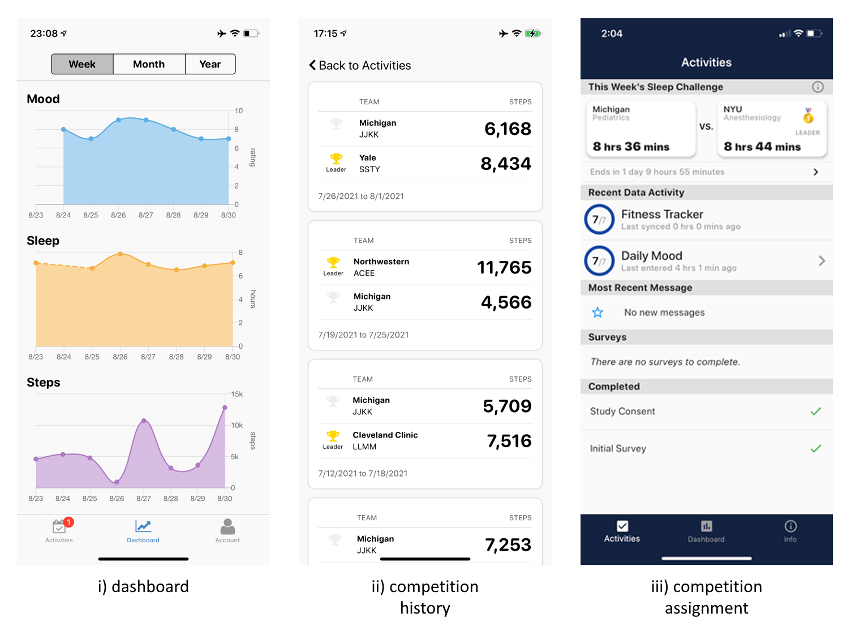Summary
Gamification, the application of gaming elements to increase enjoyment and engagement, has the potential to improve the effectiveness of digital health interventions, while the effectiveness of competition gamification components remains poorly understood on residency. To address this gap, we evaluated the effect of smartphone-based gamified team competition intervention on daily step count and sleep duration via a micro-randomized trial on medical interns. Our aim is to assess potential improvements in the factors (namely step count and sleep) that may help interns cope with stress and improve well-being. In 1,797 interns, team competition intervention significantly increased the mean daily step count by 105.8 steps (SE 35.8 p=0.03) relative to the no competition arm, while did not significantly affect the mean daily sleep minutes (p=0.76). Moderator analyses indicated that the causal effects of competition on daily step count and sleep minutes decreased by 14.5 (SE 10.2) steps (p=0.16) and 1.9 (SE 0.6) minutes (p=0.003) for each additional week-in-study, respectively. Intra-institutional competition negatively moderated the causal effect of competition upon daily step count by -90.3 (SE 86.5) steps (p=0.30). Our results showed that gamified team competition delivered via mobile app significantly increased daily physical activity which suggests that team competition can function as a mobile health intervention tool to increase short-term physical activity level for medical interns. The observed effect size in the present study is smaller than some prior studies that had different target populations, e.g., those seeking weight loss or were diseased. Future improvements on strategies of forming competition opponents and introducing occasional competition breaks may improve the overall effectiveness.
Keywords: digital health; wearable devices; personalized health interventions; physical activity; sleep; causality; moderator analysis
